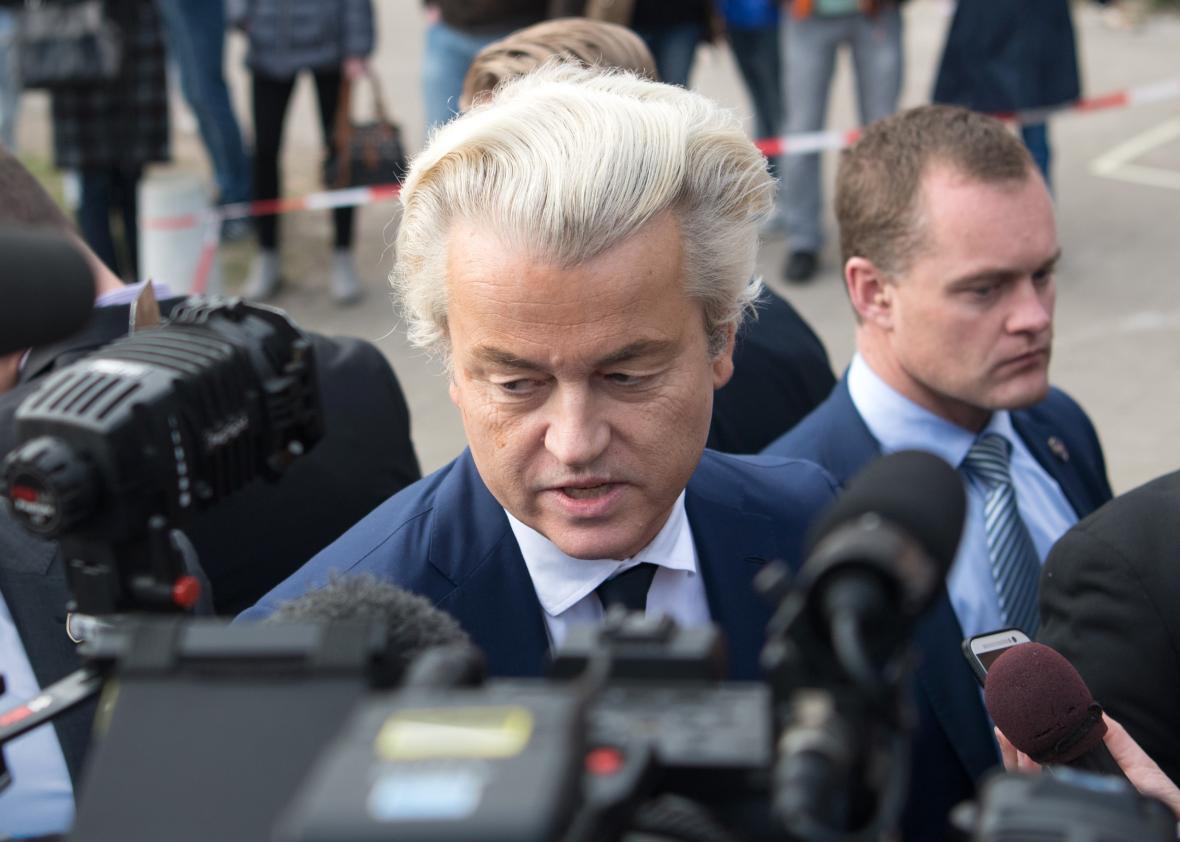Today’s Dutch election attracted an unusual amount of global attention, with everyone waiting to see if the veteran anti-Islam politician and Party for Freedom (PVV) leader Geert Wilders would benefit from the same populist backlash that propelled Brexit and Donald Trump to victory. The race was seen as a bellwether of the European far-right heading into elections in France and Germany later this year. The exit poll just released following the end of voting is not looking good for him:
The poll shows the projected seats in the Dutch parliament won by each party. Voters select parties, not individual candidates, and seats are awarded according to percentage of the total popular vote.
Current Prime Minister Mark Rutte’s center-right People’s Party for Freedom and Democracy (VVD) has a healthy lead with 31 seats, although he will lose about 10, so he probably shouldn’t feel too proud of this. Wilders’s PVV is in a fight for second place at 19 seats with two centrist parties, the Christian Democratic Appeal and Democrats 66. It was also a rough day for the Labour Party (PvdA), the Netherland’s traditional center-left party, which appears to have lost out to the surging, liberal GreenLinks party.
This is just an exit poll so some caution is warranted, but Rutte’s lead looks pretty robust. Wilders will gain seats if these results hold, but it will still be viewed as a disappointing finish given that he was leading in the polls until recently This is a smaller percentage of seats than his party won in 2010, and in a year when his favorite issues—immigration, Islam, the backlash to the EU—were front and center. The diplomatic spat between the Netherlands and Turkey over the last few days also doesn’t appear to have benefited him.
The PVV was never likely to control or even be included in the government, as most of the other parties have vowed not to partner with it, but having the most seats in parliament would have given it an enormously powerful platform and sent a message about popular support for Wilders’s ideas.
As you can see, there are a bewildering number of parties in the Netherlands. Twenty-eight parties ran and 13 appear to have crossed the .67 percent threshold needed for at least one seat. These include 50+, a party for retirees, and the Party for the Animals, a party for, well, animals. Dutch ballots are impressively massive:
We won’t have final results for a while, since ballots are being counted by hand due to hacking fears. After that, there will be a long process of coalition forming before we know what the government looks like. What appears pretty certain now, though, is that this government will not include Geert Wilders. That doesn’t necessarily mean anything for results in other elections later this year, but it could be a sign that all the talk of a global right-wing, populist wave was a bit overstated.
